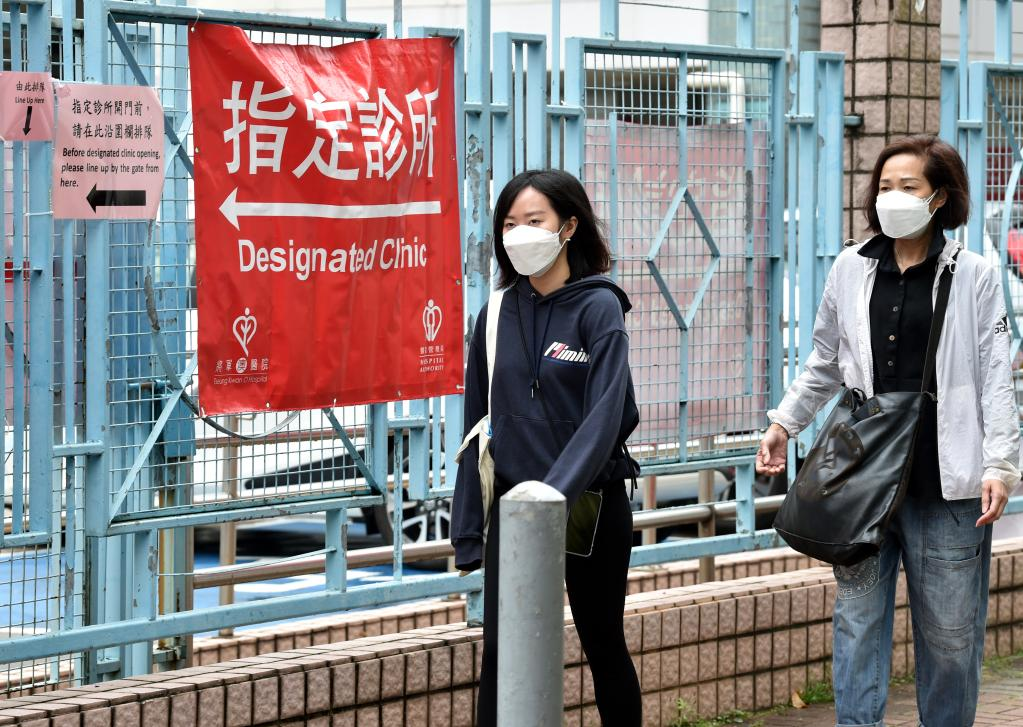HK told to focus on reducing infections, fatalities


Hong Kong's epidemic control efforts should focus on reducing the number of infected, severely ill patients and fatalities, as well as protecting elderly people, Liang Wannian, head of the National Health Commission's COVID-19 leading task force, said during a news briefing on Tuesday.
Liang said he was glad to see the outbreak in Hong Kong subsiding, but the situation was still tense as the city continues to report a high number of confirmed cases each day. As a result, focusing the city's efforts and resources to reduce fatalities and protect its citizens should be the top priority, he added.
When asked whether Hong Kong should conduct a round of mass COVID-19 testing, Liang said doing so was currently unnecessary as the city should focus its personnel and resources on other objectives.
The purpose of mass testing is to identify possible infected cases and trace contacts to give health workers a swift and comprehensive reading of the situation and help them stop an outbreak, he said.
Such testing should ideally be done as soon as an outbreak occurs. Under the dynamic zero-COVID policy, mass testing should also be conducted in certain areas at the tail end of an outbreak to ensure there are no cases left unaccounted for, Liang said.
"No mass testing doesn't mean Hong Kong is 'lying flat' or loosening its epidemic control measures," he said. "The city is tackling the outbreak in accordance with its strategic planning and has achieved positive results."
The Hong Kong Special Administrative Region government had earlier announced the relaxation of COVID-19 rules in stages over three months from April 21, starting with the resumption of nighttime dine-in services and the reopening of gyms. A ban on inbound travel from nine countries will be lifted on April 1 as part of the measures unveiled by Hong Kong Chief Executive Carrie Lam Cheng Yuet-ngor on Monday.
Business leaders and people working in the catering and tourism sectors have welcomed the government's move to ease COVID-19 restrictions, saying they expect the relaxation to provide a road map for businesses to return to normalcy, but medical experts have warned that the government needs to be extra cautious.
"The phased relaxation of social restrictions will help businesses and the community return to normalcy," Peter Wong Tung-shun, chairman of the Hong Kong General Chamber of Commerce, said on Monday. "With the support of consumption vouchers and other financial support measures, we hope that Hong Kong's economy will soon emerge from the plight of the epidemic, embarking on the path to recovery."
The catering industry has also supported the relaxation of the measures.
"The government's decision shows that it has a road map for easing the curbs," said Simon Wong Ka-wo, president of the Hong Kong Federation of Restaurants and Related Trades. "With the relaxation, the catering sector now needs to mull how to run the business."
With restrictions scheduled to be eased, the tourism sector expects business to improve for local tour operators, said Lo Sui-on, a Hong Kong deputy to the National People's Congress and a veteran in the tourism industry.
Although the epidemic situation is seeing improvement, medical experts warned that the government has to be extra cautious when examining social distancing measures due to existing transmission chains and the high number of daily cases.
"The relaxation of social distancing measures should not be too fast, nor should all measures be relaxed at once," Secretary for Food and Health Sophia Chan Siu-chee cautioned on Tuesday.
Recent research has found that three doses of BioNTech or Sinovac-two vaccines provided in Hong Kong-demonstrated similar effectiveness in preventing serious illness and death, according to the University of Hong Kong's Li Ka Shing Faculty of Medicine.
Among those aged 60 or older, BioNTech is 98 percent effective at preventing serious illness after three doses, while the rate after three doses of Sinovac is 97.9 percent, the research showed.
Oswald Chan and Ao Yulu contributed to this story.
- Former Gansu vice-governor sentenced to 14 years in major bribery case
- Officials from mainland and Taiwan pledge economic and trade cooperation
- PLA operations counter infringements and provocations
- Education key to APEC tackling future challenges
- Perpetrator in Xiangtan University dormitory poisoning case executed
- Regulator strengthens IP protection in Greater Bay Area




































